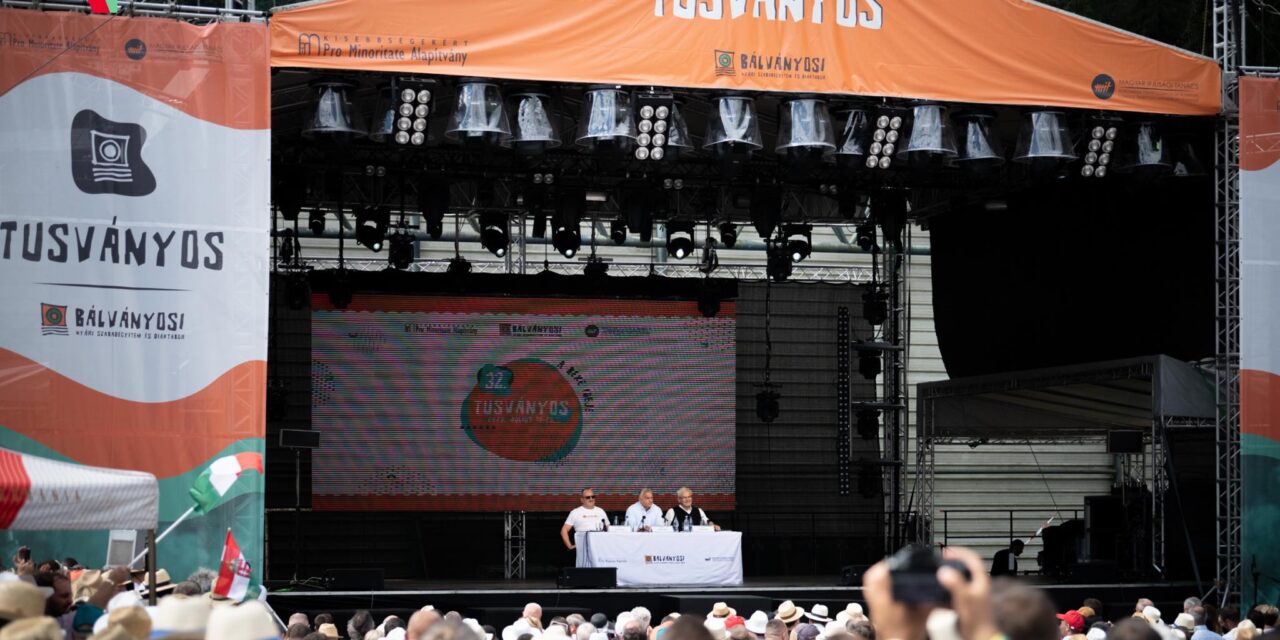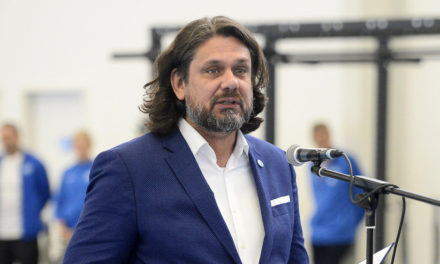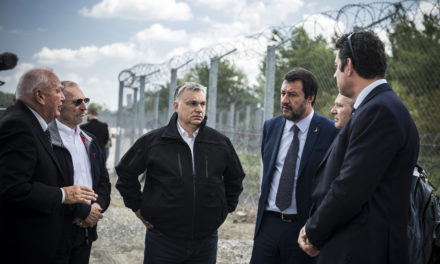You can give different answers to the questions raised by Viktor Orbán, but it is impossible to deny the existence of the questions. Written by László Bogár.
Every year, great anticipation precedes Viktor Orbán's speech at Tusnádfürdő, and this time was no different. The deepest reason for the intensity of anticipation is that no one can see through their direct experience the logic of the functioning of today's hopelessly complex world. Whether we are aware of it or not, how we view this hopelessly complex world is mostly decided by the acceptance or rejection of a story told by some "mediator". The connection between the interpretive framework and the set of concepts creates the mode of narration, that is, the narrative, which willy-nilly becomes the determinant of our decisions and actions.
Of course, one can have very different opinions about Viktor Orbán and his role in the Hungarian political system, but everyone probably agrees (including his most implacable critics) that he has a way of telling stories that can be disputed in many ways, but it can hardly be doubted that the essential issues listed in his narrative are real problems. It is therefore possible to give different answers to the questions it raises, but it is impossible to deny the existence of the questions.
There were two moments in his recent speech that, to confirm all of this, went back to the ancient Greek way of life. One of his very important messages was naming the quality of time. For ordinary thinking, time is simply a concept used by physics and can only be evaluated from a quantitative point of view, but the Prime Minister showed with two examples the dramatic consequences of not being aware of the quality of time, or even not being able to interpret it at all.
There is tactical time, which Greek culture refers to as chronos, and this is also included in our Hungarian word kronika. This, as he put it, "tactical time" really only has quantity, but there is also, as he mentioned, "historical time", where the dramatically important quality of existence of time is shown, which the ancient Greek culture named as kairos.
The tragic conflict of kairos and chronos was manifested in the decision of the American empire that, starting in the late 1970s, by promoting the rise of China, it simply wanted to create a "local rival" for the Soviet Union, which was considered its main enemy, which could somewhat "relieve" it (that is, the American empire).
But he considered his move as a fatal mistake only a tactical decision made in the quantitative time of the chronos, even though it was an act that could only be measured in terms of qualitative time in the dimension of great historical time. Because while America "became", China "is", and not 247 years ago, but five thousand years ago. In other words, Viktor Orbán said the conclusion, which is still considered a global taboo today, "now there are two days in the sky".
However, even though this is a big enough challenge in itself, he again referred to the Greeks and mentioned the Thucydides trap, which is considered one of the fundamental elements of strategic thinking, i.e. the historical situation when a declining empire feels that the last moment has come when it can still successfully strike a "first blow" at a "throne claimant" rival that is rising with fatal speed. In such cases, he said, "the opposing parties do not start from the other's intention, but from his ability, that is, not from what he wants to do, but from what he would be able to do, and the war is already over, this is called the Thucydides trap." He also added that we can be sure that "even our children will live their lives in this age, in the spirit of the times", and the Hungarian national plans must be shaped with this in mind.
We are moving towards a collision day by day, the million dollar question is whether it can be avoided. In the last three hundred years, there have been sixteen cases where a claimant to the throne appeared next to the world's leading power, twelve of which ended in war. He then added that this is the playground of the "big boys", and we Hungarians certainly have no direct say in this. But in the rest of his speech, he also talked about what we can and should do, bearing in mind the famous creed of the Transylvanian princes that it is not always possible to do what is necessary, but one must always do what is possible.
One of our decisive tasks in our own national jurisdiction is to persevere to the end in the parallel global identity war, which is being waged against the family, the nation and, ultimately, European Christianity. And which is based on the utopia created three hundred years ago, which believed that all religion would soon cease, because the final victory of Reason would come and the science of rational verbality would bring about the end of history.
It could have been that way, he added, but it didn't turn out that way, in fact it turned out that without the sacred spiritual pedestal, all great cultures decline and perish. The reason for our downfall today is that, as he put it, "we have become hedonistic pagans".
Although Viktor Orbán usually does not go next door to borrow intellectual courage, it is likely that uttering this sentence required some determination. And we cannot rule out that this was actually a worthy response to the fact that the American ambassador in Budapest, in his openly inciting speech at Pride, celebrated LGBTQ Hungarian activists as heroes like Kossuth and Petőfi. We have nowhere to retreat, because retreating in historical time is tantamount to suicide. So be it.













